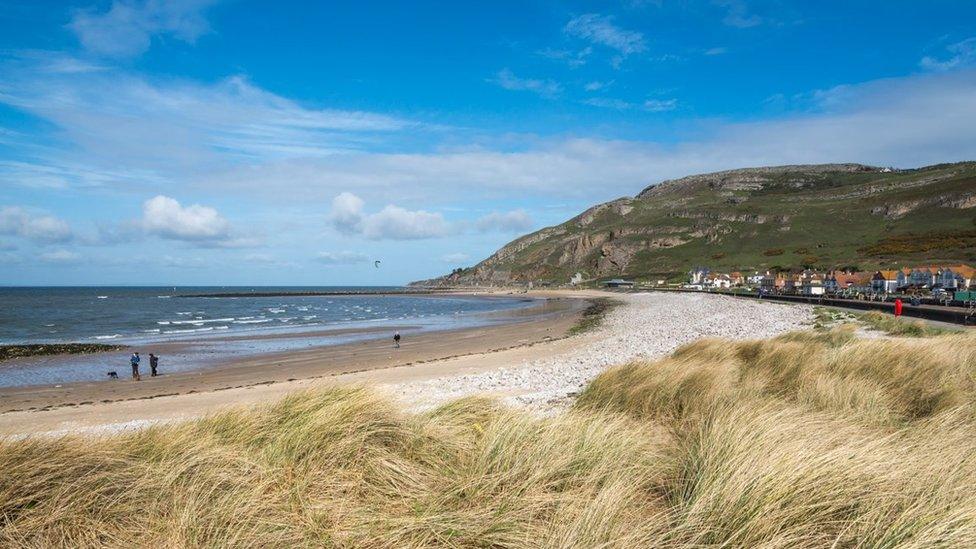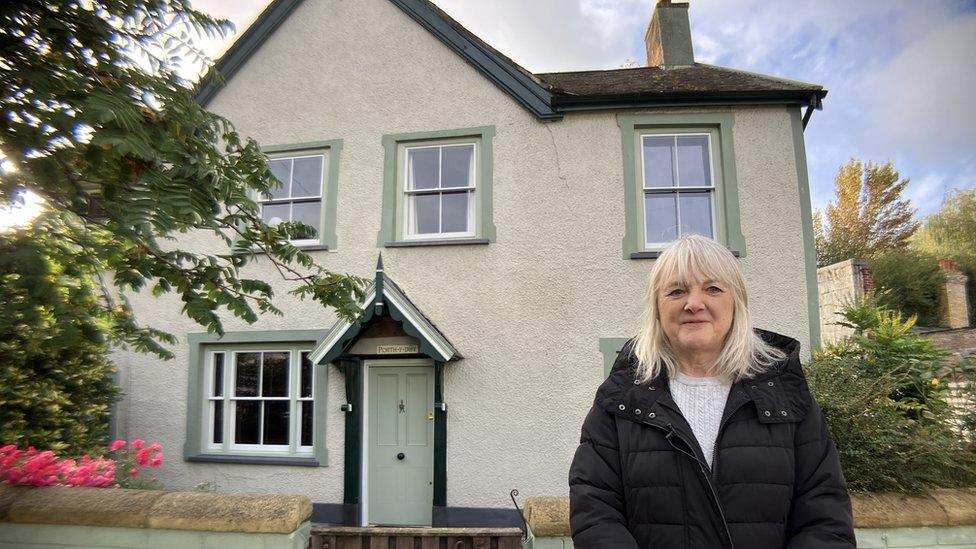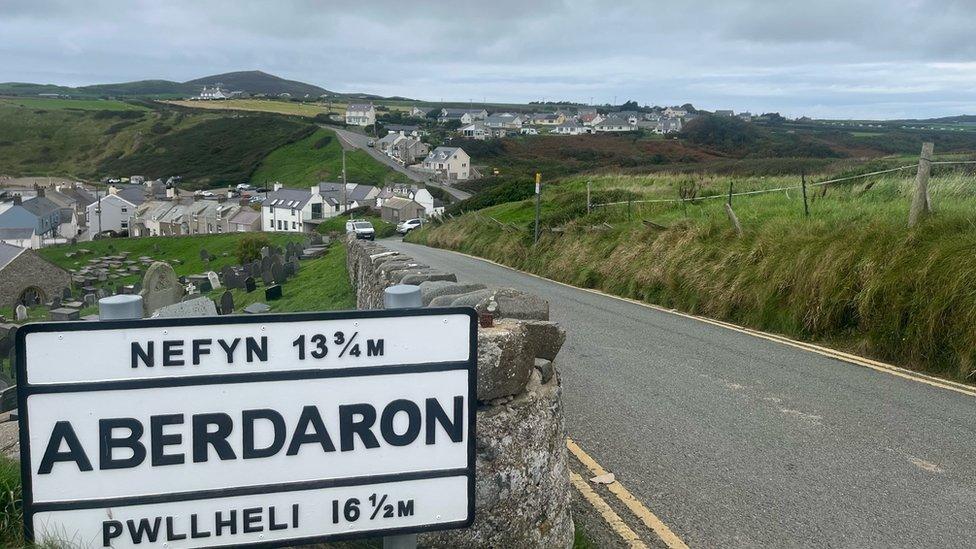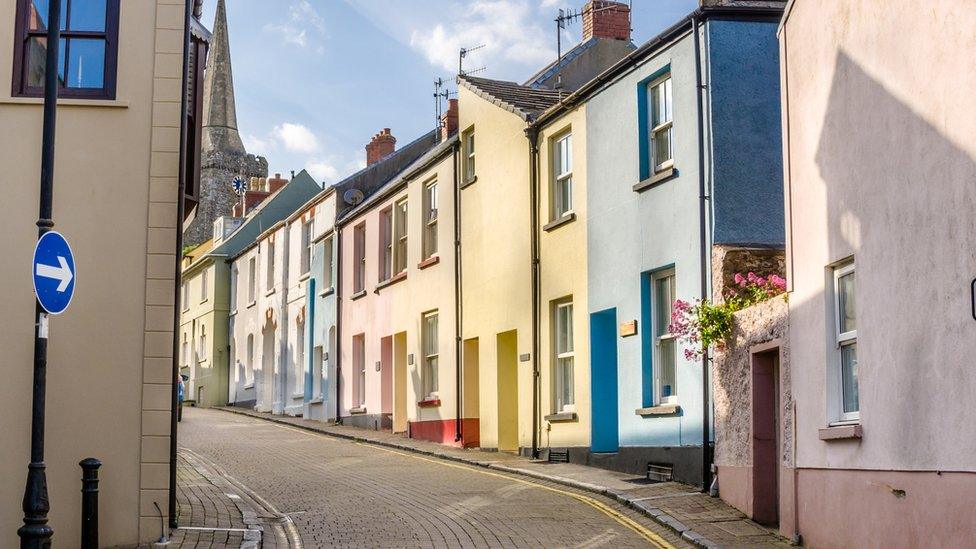Holiday lets selling up due to second home tax, MS says
- Published

Conwy council has decided to charge a 100% premium on second and long-term empty homes from next April
Businesses are having their "hearts ripped out of them" due to tax hikes on second homes, a politician has said.
Conservative Member of the Senedd (MS) Mark Isherwood said some were closing after councils were given powers to charge up to a 300% premium on second homes and holiday lets.
On Thursday Conwy council decided to raise its council tax premium to 100%.
The Welsh government said the premiums would help develop "a fairer housing market".
New legislation means local authorities can charge a premium - an amount on top of council tax - of up to 300%.
The move, included in a Labour-Plaid Cymru co-operation agreement, is part of efforts to make it easier for people to afford homes where they grew up.
Rules on self-catering accommodation being liable for business rates rather than council tax have also been tightened, and properties must now be let for at least 182 days to qualify.
Mr Isherwood, who represents north Wales in the Senedd, said many owners struggled to meet the threshold - previously 70 days - leaving them liable for the higher premiums.

Mark Isherwood said some businesses who want to sell up because of the premiums are unable to
He said he had been contacted by "huge numbers of constituents" running "legitimate self-catering businesses".
Among them, he said, were a couple whose holiday let is attached to their own home, and they were now selling the whole property.
"They're heartbroken. They talk about mental health issues, sleeplessness, financial consequences," he said.
He added: "We're talking about real, indigenous businesses that are central to local tourism economies, potentially having their hearts ripped out of them."
He said some people were were struggling to sell up because mortgage lenders are concerned about the impact of the premiums on certain properties.
Denbighshire council has voted to increase its premium on second homes and long-term empty properties from 50% to 100%.
Carol Smith, who has run Porth Y Dwr cottage in Ruthin, Denbighshire, as a holiday let since 2017 said she and her husband now plan to stop offering holiday lets and rent the property out instead.

Carol Smith, has been running Porth Y Dwr cottage in Ruthin, Denbighshire, as a holiday let since 2017
The couple had bought the property when it was an empty café and turned it into a residential unit.
"We can't go on if we're going to be paying increasing premiums," she said.
"The biggest issue for a lot of people in the area, and us particularly, is achieving 182 days on a regular basis is well-nigh impossible."
Before Conwy council's decision, council leader Charlie McCoubrey said 40% of the county's 1,600 second homes were the most affordable housing.
"We need to prioritise our housing stock for local residents," he said.
He rejected the idea that holiday lets brought more money into the economy than renting a home all year round.

Holiday let owner Robin Leatherbarrow says the 182-night occupation threshold is causing "stress" for businesses
But Robin Leatherbarrow, who has owned a five-bedroom holiday let in Colwyn Bay for four years, said others will be forced to close their businesses or raise prices - risking losing bookings.
Each year his property has been occupied 182 nights a year - so he does not pay council tax but lower business rates - but said he is worried that could change in future.
Under Welsh government rules, if a property is rented out at least 182 days per year the owner is not charged council tax. Until April this year that number was 70.
"It causes an awful lot of stress amongst myself and my fellow proprietors," Mr Leatherbarrow said.
A survey by the Professional Association of Self Caterers found only a quarter of holiday let businesses believed they would reach 182 nights of bookings next year.
The Welsh government said tourism was important for the economy, but it had to "ensure appropriate balance".
It said everybody "has a right to a decent, affordable home to buy or to rent in their own communities so they can live and work locally" and the charges aimed to develop a fairer housing market and "ensure property owners make a fair contribution".
Plaid Cymru is in a co-operation deal with the Welsh government, which includes policies on second home ownership.
Its housing spokesperson Mabon ap Gwynfor said: "For too long we've seen communities dwindling because of the increase in holiday lets and second homes. Closing the tax loophole helps to ease this problem and give people the opportunity to live near their families and keep communities alive.
"If some owners decide that the best course of action is to lease the property as a permanent rental property then that will be a net positive because it will bring more properties back into the housing stock."
- Published13 September 2023

- Published14 December 2022
